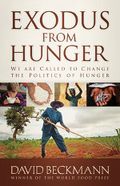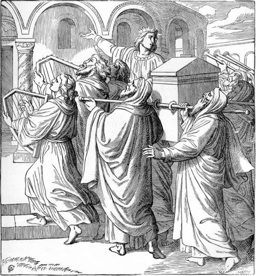Earlier this week on Flunking Sainthood, a fellow Mormon was offended by an offhand remark I had made about some General Authorities not appearing to read widely. I was not surprised by someone taking offense, which is a regular occurrence on blogs, particularly ones about religion. But I was disappointed with the spiritual immaturity of this person’s proposed solution to the fact that I had lodged a criticism, even a light one made in partial jest: “This
comment shows her lack of support for the prophets of the church. If
she cannot sustain the leadership of the church, she needs to
disassociate herself with us.”
I’ve been thinking about this exchange while reading the early chapters of Ken Howard’s new book Paradoxy: Creating Christian Community Beyond Us and Them. (Just to bring you up to speed on the book and the blog tour, Chapter 1 was reviewed on this New Zealander’s liturgy blog, and Chapter 2 was incisively reviewed yesterday by Amy Moffou at Without a Map. You can also read praise from Brian McLaren, who wrote the foreword to the book and blogged about it here.)
Howard’s main thesis is that the fault lines between conservative and liberal Christians have never been more pronounced, and that these divisions are occurring because three of the solid structures traditionally used to support Christianity–Christendom, foundationalism, and organized religion–are crumbling.
Voices are shrill because so much change is happening so quickly and
people worry there is much to lose. Some will respond to open
discussions about religious change with fear, as with the commenter
whose knee-jerk response to criticism was to suggest that anyone who
disagreed with any aspect of the trappings of religion needed to leave.
This, however, is not the response of Jesus, nor is it the answer of any
mature Christian. When we have a disagreement in our own families, for
example, we don’t simply walk out and say, “You’re impossible. I’m out
of here.” If we are wise, we learn from one another and we work it out.
Why, then, do we so easily forget that the body of Christ is a family
too, and that we are called to stand by each other? (1 Cor. 12)
Chapter
3 of Howard’s book specifically addresses how Christians deal with the
collapse of foundationalism, or the claim that truths can be fully
ascertained through human reason. I would argue that the “collapse” of
foundationalism overstates the case, but it is certainly true that many
Christians cling to certain idols as lifeboats in uncertain times–the
idea of an inerrant Bible or religious leader, for example–and become
hostile when their foundationalist claim is questioned. He argues that
people respond in one of three ways when someone or something tips their
sacred cows:
- They rally around the purist position,
using foundationalist strategies to uphold what they see as received
truths. (The classic example of this would be using the Bible to “prove”
the truth of the Bible.) - They compromise and adapt. They might soften their position in response to other claims to truth.
- They
shoot the messenger by creating a “them,” then focus on the
inconsistencies and problems with the arguments of that group.
I’ve
seen all three of these responses among Christians–and sometimes, disappointingly, in myself. I
wish I could be optimistic about the future of this debate, but I agree
with Howard’s assessment that the conversation will continue to splinter
along predictable fault lines.
I also agree with his larger claim that
we are living through a Second Reformation. The problem, as you may
recall, is that a whole lot of people died the first time around. In
this country, unlike 16th-century Europe, we enjoy great political
stability, making a repeat of bloody religious wars unlikely here.
However, that doesn’t mean that Christians will face these changes hand
in hand and treat one another with respect. That’s something we need to work on, starting with me.

